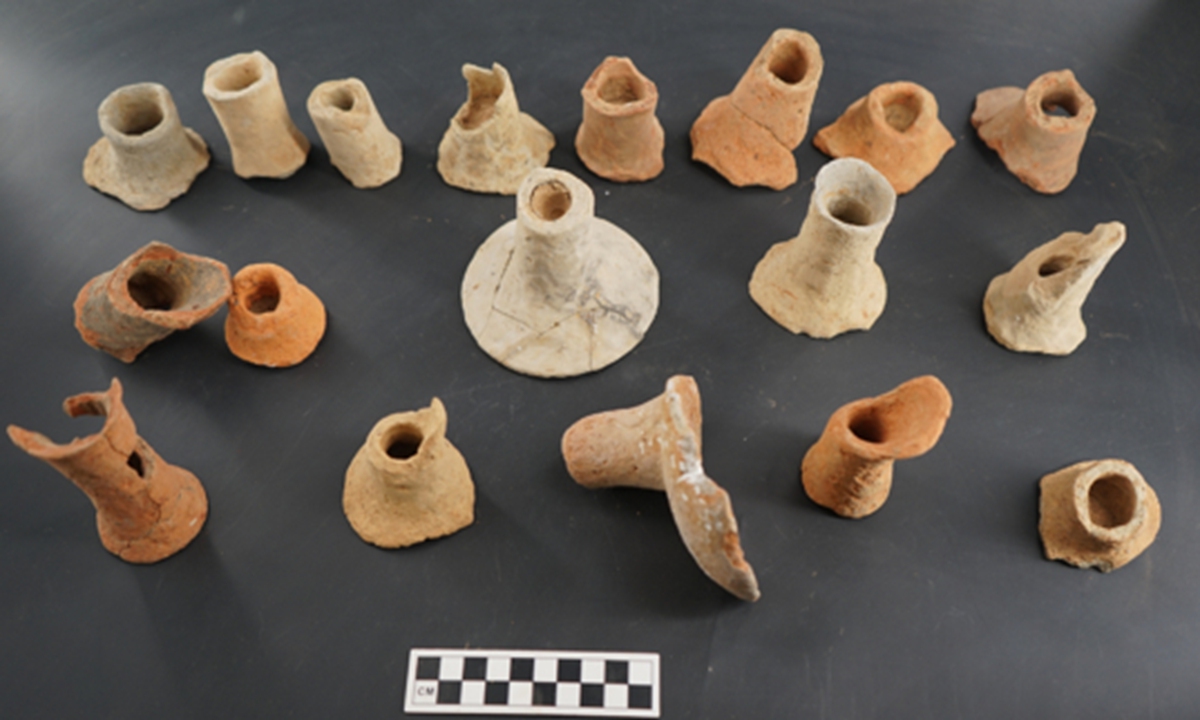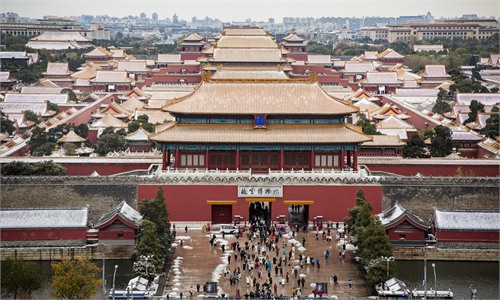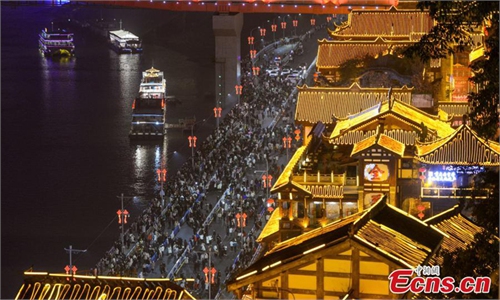
Some of the cultural relics unearthed from the Dahuzui Site Photo: Courtesy of China Central Television
Chinese archaeologists have uncovered a new ancient site, the Dahuzui Site, in Chibi, a county-level city in Central China's Hubei Province. The new site is the largest and best-preserved Western Zhou Dynasty (1046BC-771BC) city site ever discovered south of the Yangtze River, according to a press release from Hubei Provincial Museum on Monday.
Since July 2022, the archaeological team has been carrying out excavation work around sections of the site that are more damaged than the rest of the site, and a total area of around 1,000 square meters has been excavated.
More than 200 cultural relics including ritual vessels and sharpened knives made of copper have been unearthed so far. A flat tin pot dating to the early- to mid-Spring and Autumn Period (770BC-476BC) has also been unearthed. The pot is a rare find for the period and is of great value for the study of ancient Chinese casting techniques since the ratio of the tin content in the alloy it is made of reaches a high 92.7 percent.
According to reports, archaeologists initially confirmed the layout of the ancient city wall and moat and the scope of the city site. After carrying out topographic surveys and three-dimensional modeling of the city site, they determined that the city was around 172,000 square meters in size.
Archaeologists say that the site is of great significance for research into the cultural genealogy of the Shang and Zhou dynasties (c.1600BC-221BC) south of the Yangtze River.



